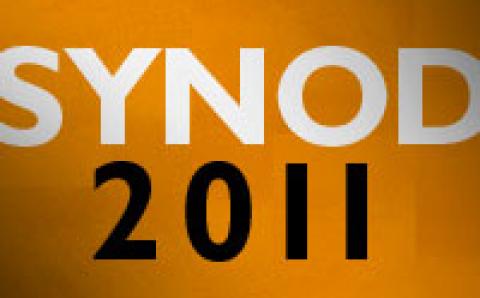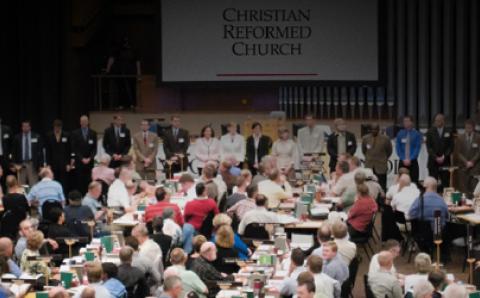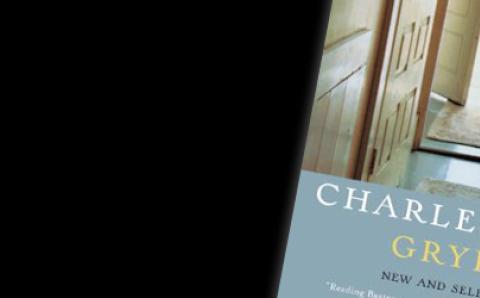So which do you prefer, living in Canada or the United States?
As a dual citizen and a pastor whose 20 years of ministry have been split evenly in each of the two countries, I’ve been asked that question many times by people on both sides of the border. Call me a coward, but I usually take the easy—yet true!—way out and say there are good and bad aspects of life in either place.
Since July is when Canadians and Americans celebrate their national birthdays, Canada Day and Independence Day, it’s fitting that we reflect on the unique challenges we face in bringing a clear witness to the gospel in both contexts.
“We prefer the more idolatrous arrangement.”
I see many similarities between Canadian and American culture, but I see differences too. I recall a conversation I had with someone shortly after moving to the United States in 1998. He asked me how living in the U.S. was different from living in Canada, and as soon as I began describing the different understanding of the relationship between church and state, he responded with, “Yes, here in America we prefer the more idolatrous arrangement.”
Wow. He wasn’t totally serious, of course, but his comment still surprised me. My understanding of his words became clearer as the years went by, especially after 9-11. I began to see how strong and seductive the tendency toward civil religion—an alignment of political and spiritual devotion—is in America.
Patriotic Overkill?
In 2005 the National Day of Prayer in the United States fell on the same day as Ascension Day—May 5. That morning I went to a chapel service at the Christian elementary school my children attended at the time. It was all very good—lots of praying and lots of singing, especially of patriotic songs. But one thing struck me as odd and quite out of character for a Christian school: not one reference to Ascension Day was ever made. I realize that Ascension Day is often a forgotten feast in the Christian calendar, but to have so much patriotic fervor on display without any specific reference to our ascended Lord, who sits enthroned above all the nations of the earth, struck me as representing a confusion of allegiances.
Sometimes the tendency toward civil religion in America is evident on a much larger scale. In his State of the Unionaddress in 2003, President George W. Bush noted that “there’s power, wonder-working power, in the goodness and idealism and faith of the American people.” While that’s true, substituting a well-known Christian hymn’s reference to “the precious blood of the Lamb” with traditional American values is misguided.
Something similar occurred in 2005, in Bush’s second inaugural address. Here the president spoke of how “Americans move forward in every generation by reaffirming all that is good and true that came before—ideals of justice and conduct that are the same yesterday, today, and forever.” Again, there is no denying the truth of that statement, but the revision of Hebrews 13:8, where we read that Jesus Christ “is the same yesterday and today and forever,” is unmistakable.
And then there was the president’s speech given on Ellis Island on the first anniversary of 9-11. With the Statue of Liberty’s illumination in New York Harbor as his backdrop, President Bush said that the “ideal of America is the hope of all mankind. That hope drew millions to this harbor. That hope still lights our way. And the light shines in the darkness. And the darkness will not overcome it.” Here was civil religion in America displayed in one of its most immodest moments.
That America is a good nation whose influence on the rest of the world has been enormously beneficial is beyond dispute. But as brightly as it shines, does the light of American influence really warrant the usurping of the image the gospel of John uses in reference to Jesus—the Light that shines in the darkness and which the darkness will not overcome (John 1:5)?
Trouble North of the Border
Though civil religion poses in serious threat America, one has to wonder whether the situation in Canada is any better. Here an opposite but equally corrosive influence on the gospel is present: secularism.
The assumption in secular Canada is that all religions are equal and none is essential, so no evidence of religious influence on public life is permitted. To borrow my friend’s comment, an observer of Canadian political and religious practice could legitimately say, “Here in Canada we prefer the more heretical arrangement.” That’s because Canadian culture tends to regard Christianity as a strictly personal matter.
Occasionally, Christian faith may be affirmed for its sentimental value. Increasingly, it is characterized as illogical and obsolete. So, while the tendency to identify Christian devotion with patriotism may be not nearly as strong in Canada as it is in the United States, cultural receptiveness to Christianity in Canada is both weak and waning.
Last December an article in the Globe and Mail, Canada’s national newspaper, reported the structural demise of church buildings in Quebec. Not that long ago, Quebec was patently Catholic. Today it is undoubtedly the most secular environment in North America. Years of dwindling church attendance and rising maintenance costs have taken a toll on church buildings, rendering many of them unusable.
The Globe and Mail article quoted an urban-studies researcher who predicted that 60 percent of the churches in Quebec today would close within 15 years. What’s happening to Catholic churches in Quebec is occurring elsewhere. The United Church of Canada is the largest Protestant denomination here, and it closes one church a week.
This is not to suggest that Canada is a spiritual wasteland. Most United churches that are closing are small, rural congregations that have been affected by drastic changes in the agricultural industry, resulting in fewer family farms than in previous years. There are even encouraging signs of spiritual renewal in Canada, particularly in urban centers. But the force of secularism in Canada, like that of civil religion in America, is strong.
Rev. Michael Wagenman, who was born and raised in the United States and currently serves as the CRC chaplain at the University of Western Ontario in London, believes that the different cultural forces in Canada and the United States bring the same result: a watering down of the gospel. He said: “In the U.S., we forget the gospel’s prophetic call against consumerism, militarism, and nationalism, and in Canada we are hesitant to declare boldly the distinctiveness of the Good News that’s only found in Jesus because we don’t want to be accused of upsetting anyone. In both cases, Jesus is turned into a one-dimensional character: all love, help, and compassion, but with no judgment on sin or radical calls to discipleship that’s distinctive from the culture.”
The good news is that, despite their flaws, Canada and the United States provide abundant opportunities for genuine Christian witness. The kingdom of Heaven, praise God, is present and active in both countries—indeed, in every nation. I smile when border officials from both countries welcome me home when I travel from one country into the next. Perhaps that’s as good an indication of what the kingdom of Heaven is like as any.
About the Author
Rev. Peter Hoytema is pastor of Midland Park (N. J.) Christian Reformed Church.








